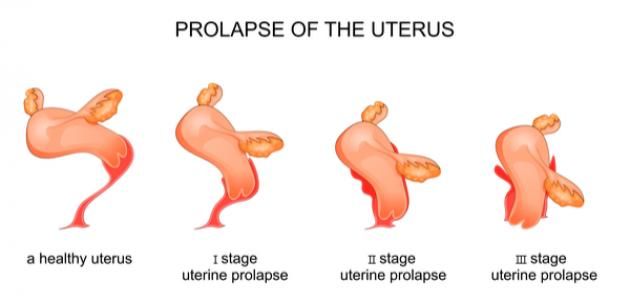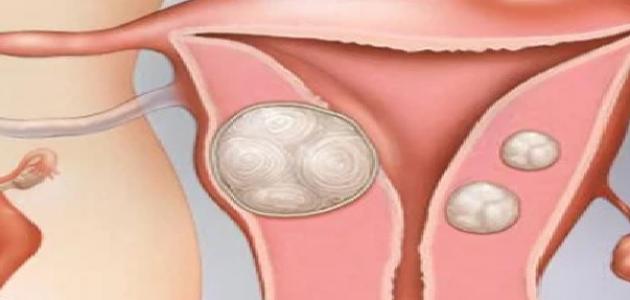Causes of low menstrual bleeding
The causes of light period bleeding can be explained as follows:
Age
The menstrual cycle differs in the length of its duration, the frequency of its occurrence, and the amount of blood lost at the beginning of menstruation compared to the later stages of a girl’s life, as the menstrual cycle is usually not regular for a few years after the first menstrual period occurs, then it becomes more regular with age, and it also varies The amount of blood lost during the menstrual cycle according to age; Menstrual blood is usually lighter in teenage girls than in adult women, and it is noteworthy that the amount of blood that teenage girls lose during menstruation may reach 80 milliliters during one menstrual cycle. The menstrual cycle may become short and the amount of blood lost during it is heavy when the woman reaches the end of her thirties and forties. Age: The menstrual cycle may be absent in some months, and the menstrual cycle usually becomes irregular and the amount of blood lost during it is small during the period before menopause or menopause (in English: Perimenopause).
Anovulation
The anovulatory cycle is known as the menstrual cycle characterized by the absence of ovulation. Which prevents a woman from being able to get pregnant, as the absence of ovulation leads to the absence of fertile days in which fertilization and pregnancy are likely to occur. It should be noted that a short menstrual cycle may indicate the absence of ovulation, and that this is normal unless it is frequent.
Read also:Accelerate the menstrual cycle
Stress
Stress and psychological pressures of life negatively affect women, through their effect on the balance of the body’s hormones, and this in turn leads to irregular menstruation. A woman who suffers from menstrual irregularity due to psychological stress must make some adjustments to her lifestyle; This includes knowing the reasons that might lead to an increase in psychological stress, trying to avoid them, and taking ways to control them.
Polycystic ovary syndrome
Women with polycystic ovary syndrome suffer from increased secretion of androgens, which represent male hormones, which negatively affects the menstrual cycle. Causing suffering from oligomenorrhea.
Use of birth control pills
The traditional birth control pill package contains either 21 or 28 medication tablets. In both packages, there are 21 active medication tablets, meaning they contain hormones in their composition. As for the package containing 28 tablets, the remaining seven are without Effective ingredients, and menstruation occurs during the week in which the woman takes these ineffective pills, or when she finishes taking all the pregnancy pills in the course that contains 21 pills. Currently, other forms of birth control pills are available, such as those that contain 24 pills. Effective and 4 tablets without active ingredients, and extended-cycle pills, which are used to stop menstruation completely for a long period of time, up to a year.
Read also:Symptoms of dry milk from the breastIt should be noted that women may suffer from some side effects during the first months of using birth control pills. The most prominent of which is irregular menstruation or blood spots during the menstrual cycle, known as spotting. This occurs to a greater extent when using long-term birth control pills or those that contain progestin only compared to combined pills that contain both estrogen and progesterone. The possibility of irregular or short periods also increases if used. Monophasic birth control pills, which contain the same dose of hormones in each pill, compared to triphasic pills, which contain different doses of hormones, taking into account that this will disappear after a period of using these pills for many women. It is worth mentioning that spotting also occurs when you forget to take birth control pills or delay taking them beyond the usual time, even if that is for a limited number of hours. Especially when using progestin-only pills.
Doing strenuous exercise
Exercising is good for health, but it has been proven that the physical stress that accompanies strenuous exercise can affect the balance of the hypothalamic-pituitary-ovarian axis in some people, as the hypothalamus plays a role in The brain plays a role in regulating the menstrual cycle, and this is done through the secretion of hormones to regulate both the pituitary gland and the ovaries, which in turn stimulates ovulation. Therefore, losing weight significantly or doing strenuous exercise may lead to physical stress that may cause a disturbance in these processes and their balance. This may result in ovulation stopping, and thus less menstruation.
Read also:Hormonal imbalance in women
Breastfeeding
The secretion of the hormone prolactin (in English: Prolactin), which is responsible for milk production, prevents the ovulation process, and this in turn leads to the absence of the menstrual cycle or lack of menstrual bleeding. Therefore, it can be said that breastfeeding (in English: Breastfeeding) affects the menstrual cycle, as the menstrual cycle may stop. For most women after childbirth, breastfeeding is relied upon to provide the child with his need for milk and food. This may continue for a period that may reach a year if the mother is breastfeeding her child continuously, day and night, and when she returns, it may be irregular, especially if the child continues to be breastfed. Even if only partially, there are many factors that affect the time when menstruation returns during breastfeeding. Such as the number of times a child is fed formula.
Eating disorders
Eating disorders are characterized by abnormal eating habits and intense fear and anxiety about weight or body shape. Eating disorders may result in a loss of body weight, which in turn leads to a change in the balance of hormones responsible for regulating the menstrual cycle. Which leads to irregular menstruation or lack of menstrual blood, and the most famous examples of eating disorders are: Anorexia Nervosa, Bulimia Nervosa, and Binge Eating Disorder. .
Thyroid diseases
The thyroid gland plays a role in regulating the menstrual cycle, as an excessive increase or significant decrease in the levels of its hormones affects the menstrual cycle and makes it irregular, or may reduce the amount of blood lost during the cycle or increase menorrhagia, and this may cause it to stop for several months or For a longer period than that.
Use of certain types of medications
There are many medications that may affect the menstrual cycle as a side effect of their use, which requires seeing a doctor to take the most appropriate action for the case. Among these medications are the following:
- Antidepressants.
- Antibiotics.
- Some medications used to treat high blood pressure.
other reasons
There are many conditions and causes that may lead to irregular menstruation or lack of menstrual bleeding, and one can resort to a gynecologist to identify these conditions and find out the treatment - if necessary - for them, and we mention among the most prominent of them the following:
- Unexpected pregnancy.
- Early miscarriage.
- Problems with the uterus and ovaries.
- Tumors of the pituitary gland, such as prolactinomas, in which the secretion of the hormone prolactin increases, resulting in the secretion of milk from the breasts even if the woman is not breastfeeding or pregnant, and thus irregular or absent menstrual cycles.
- Narrowing of the cervix (in English: Cervical Stenosis) or Asherman's Syndrome (*), which is one of the rare conditions that leads to retention of menstrual blood in the uterus, and thus decreased menstrual blood.
Information about menstrual bleeding
The term menstrual oligoemia expresses a significant decrease in the amount of blood lost during menstruation, or a decrease in the number of menstrual days to less than normal, taking into account that the normal duration of menstruation usually lasts a number of days ranging between 4-7 days, and in most cases it does not cause The condition of low menstrual blood causes a feeling of anxiety, but the woman must consult a doctor if this condition continues during every menstrual cycle, or when the menstrual period is absent for a period of time, or if the lack of menstrual blood is accompanied by other symptoms; Such as pelvic pain.
Some may confuse lack of menstrual blood with vaginal spotting. In fact, vaginal spotting or spotting is represented by blood spots outside of the menstrual cycle. This is common in the first months of pregnancy, and may occur as a side effect of using birth control pills, or due to the ovulation process, or Suffering from a certain infection, or as a result of other physiological factors, it should be noted that it is necessary to consult a doctor if vaginal spotting occurs repeatedly. This is to take appropriate measures or undergo appropriate tests to find out the cause and treat it.
Margins:
(*) Asherman Syndrome: One of the rare gynecological disorders that is represented by the formation of scar tissue that causes severe inflammation in the lining of the uterus, resulting in changes in the menstrual cycle. These scars and adhesions in the uterus may arise due to several factors; Among them: scraping the uterine lining during surgery, cleaning tissue from the uterine wall, or as a result of infection of the uterine lining; Such as tuberculosis.









